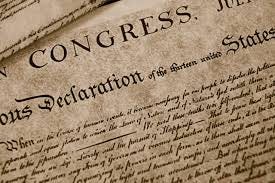Independent Justice
During the campaign, President-elect Trump and his allies accused the Biden Administration of weaponizing the Justice Department. He also said the Justice Department should be subservient to him.
Justice Briefs is a weekly newsletter devoted to federal criminal prosecution. The federal government’s evolution over the last 230 years has given federal prosecutors significant discretion. Few realize it exists and even fewer know how it is used. Justice Briefs aims to make federal prosecutions and prosecutors more accessible to the general public. Please help me in this endeavor by subscribing and sharing with others.
Justice in Brief
In the Southern District of Florida, a man who worked at a call center was found guilty of participating in a scheme to defraud Medicare by creating fake medical records to get companies to provide genetic testing.
In the Western District of Oklahoma, several correctional officers were indicted for deliberately disregarding the medical needs of a female inmate who had been assaulted and killed by other inmates.
In the Southern District of New York, a consulting company was charged with violating the anti-bribery provisions of the Foreign Corrupt Practices Act. The company paid bribes to obtain confidential information from state-owned transportation and electric companies in South Africa.
What is prosecutorial independence?
One of the core issues at the intersection of politics and federal criminal prosecution is the independence of the Justice Department from political influence. The concern initially arose during the Watergate scandal when President Nixon took steps to obstruct the Justice Department’s investigation and fired top Justice Department officials who would not do his bidding. These concerns would lead to provisions for independent or special counsels to handle conflict of interest cases and to accusations from the party not in the White House that the President was using the Justice Department for partisan purposes. More recently, the accusations have escalated. Both parties now claim that the other has used criminal prosecution as a means to attack the other party. Donald Trump and his allies called the prosecutions against him “lawfare.” Joe Biden, when pardoning his son, stated that his son was targeted for prosecution as a means to tarnish the president. This begs the questions of whether the Justice Department is independent from political influence and whether it should be. To answer these questions, however, we need to know what prosecutorial independence looks like.
An independent person is one free from outside control and who can act without reliance on another person’s authority. In the realm of federal prosecutors, this means that the Department of Justice (at one level), the United States Attorneys (at another level), and individual prosecutors (a third level) can make decisions without having to answer to an outside authority or at the behest of another. What this looks like will differ between the three levels. For the Department as a whole, it means freedom from anyone outside the department, be that the President, Congress, the courts, or juries. For US Attorneys, the Justice Department joins the list of outside actors. For individual prosecutors, both the Justice Department and the US Attorney’s offices serve as outside forces.
Absolute prosecutorial independence is not desirable. If prosecutors possessed absolute independence, they could easily abuse this power which would then undermine the entire criminal justice process. Without any check on decision-making, prosecutors could literally become accuser, jury, and judge. An example illustrates this. Attorney General nominee Pam Biondi, in 2016, led a chant to lock up Hillary Clinton. An Attorney General, acting with absolute independence could have initiated charges without fearing any accountability. Thus former Secretary of State Clinton could be subjected to the punishment that is the criminal justice process.
Fortunately, there are inherent checks throughout the process. At the outset, a judge and/or a grand jury will determine if the prosecutor has probable cause to support the charges. The probable cause standard is also a matter of professional ethics. Prosecutors can be disciplined by state bar authorities for intentionally initiated charges not supported by probable cause. Even if the case passes this initial scrutiny, the defense could file a motion to dismiss the case, arguing as a matter of law that the prosecution cannot prove the case. Should that fail, the defendant can insist upon a trial by jury where the prosecutor must present evidence that the defendant committed the offense beyond a reasonable dount. Finally, the defendant, if convicted, could appeal the conviction.
While these checks are inherent in the process, they are not always effective. As the saying goes, prosecutors could get a grand jury to indict a ham sandwich. Prosecutors can also draft indictments so that they survive judicial review. By this time, the defendant has accumulated significant financial costs and potentially reputational and political costs. Media attention may also create a presumption of guilt that will be hard to overcome during a criminal trial. It could also take a year or more before the defendant stands trial before a jury. Thus, prosecutors who want to target political opponents can impose significant costs without significant accountability.
Herein lies the problem with prosecutorial independence. Prosecutors can target political enemies if they have independence just as easily as if they are ordered to do so by someone outside the Justice Department. Ultimately, the character of the people exercising prosecutorial authority matters most.
I hope you enjoyed this issue and that it made you stop and think. I would love to hear any comments, questions, concerns, or criticisms that you have. Leave a comment or send a message! Also, if you enjoyed this or if it challenged your thinking, please subscribe and share with others!



